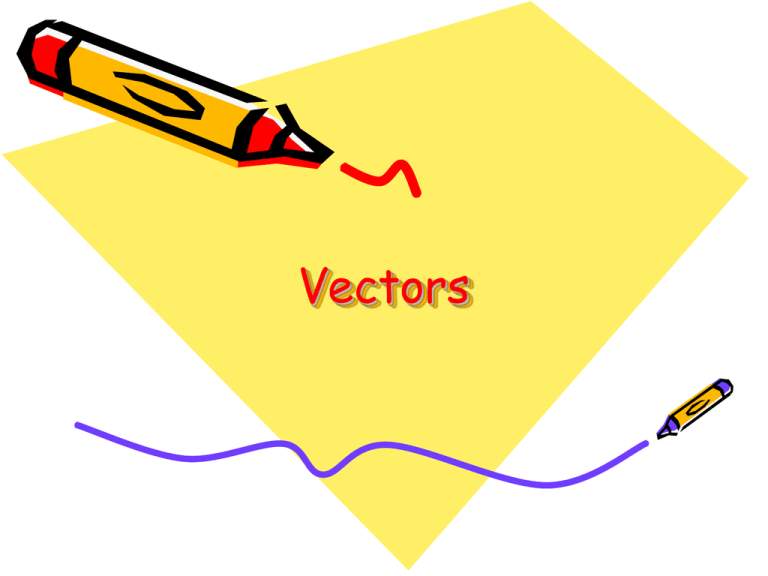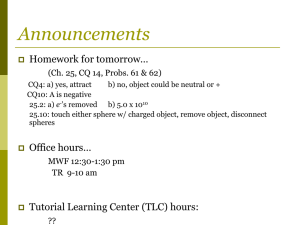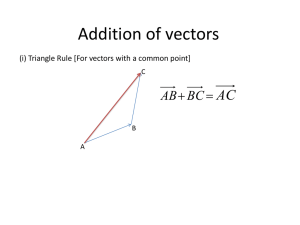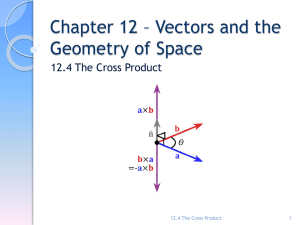Vectors - MathInScience.info.
advertisement

Vectors What is a vector quantity? Vectors Vectors are quantities that possess magnitude and direction. »Force »Velocity »Acceleration What are scalar quantities? Scalars • Scalars are quantities that possess only magnitude. • • • • • • • How much money you have How old you are How tall you are Temperature Pounds Speed Length Represent the following vectors • A wind velocity of 20 mph due north • A boat traveling 4 knots per hour heading east • A car traveling 60 mph heading south Equal Vectors • Same length • Same direction Parallel Vectors Adding Vectors Three Methods for Adding Vectors • Tail to Head Method • Parallelogram Method • Component Method Tail to Head Method Adding Vectors Tail to Head Draw Vector A with the correct length and angle. Draw Vector B with the correct length and angle, but such the Vector B’s tail starts at the head of vector A. The Vector C is then represented by an arrow from the tail of Vector A to the head of Vector B. Adding Vectors Same direction • Adding Vectors Opposite directions Adding Vectors Components Parallelogram Method Parallelogram Method Vector 2 Vector 1 Component Method Component Method Find the sum of Vector 1 and Vector 2. Vector 1 is 25 m 50 N of E Vector 2 is 10 m 45 N of W Component Method • Using Trigonometry, find the x-component and the y-component for each vector. • Add up the x-components. • Add up the y-components. • Use the Pythagorean Theorem and the trig functions to get the size and direction of the resultant vector. Finding the x-component adjacent cos hypotenuse Y-component X-component Finding the x-component Vector 1 is 25 m 50 N of E adjacent cos hypotenuse x component o cos 50 25 meters X-component = 25 * cos 50 X- component (vector 1) = 16.1 m Y-component 50 X-component Finding the y-component opposite sin hypotenuse Y-component X-component Finding the y-component Vector 1 is 25 m 50 N of E y component sin 50 25 meters o y-component = 25 * sin 50 y- component (vector 1) = 19.2 m Y-component 50 X-component Finding the x-component Vector 2 is 10 m 45 N of W adjacent cos hypotenuse Y-component 45 X-component x component cos 45 10 meters o X-component = 10 * cos 135 X- component (vector 2) = -7.1 m Finding the y-component Vector 2 is 10 m 45 N of W opposite sin hypotenuse Y-component 45 X-component y component sin 45 10 meters o y-component = 10 * sin 135 y- component (vector 2) = 7.1 m Adding the x- components Vector 1 + Vector 2 16.1 m+ -7.1 m = 9 m Adding the y-components Vector 1 + Vector 2 19.2 m+ 7.1 m = 26.3 m Using the Pythagorean Theorem c²= a²+ b² c²= 9²+26.3² c²= 772.69 c = 27.8 meters opposite tan adjacent 26.3 tan 9 1 26.3 tan 9 = 71.1 N of E Mission Impossible Vectors on the Go Good Luck







